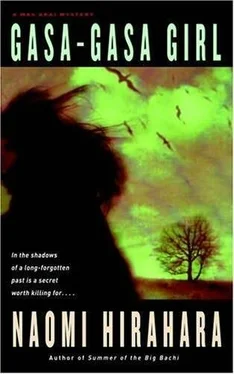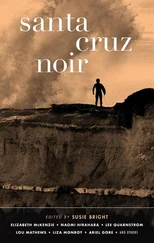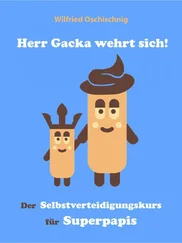“Butcher?” offered Tug.
“Yah, butcha. So dis person-girl, right?-went to buysu beef for some kind of dinner. Stew. For, letsu see. Wakusuri.”
“The Waxleys!” Mari exclaimed.
“Yah, Waxley family, I guess.”
Mas flipped through more pages. All notes about preparing meals and rooms to clean. The writer was obviously some sort of housekeeper, like Chizuko, because all she wrote about was making the Waxley family more comfortable in the Prospect Park house.
Mas dragged his dirt-lined fingernail up and down the lines. This woman was wired to be chanto, to take her work seriously.
“Pretty tsumaranai ” was Mas’s final analysis.
“What?” Kevin asked.
“Boring,” Mari translated.
“Well, it’s her day-to-day activities.” Kevin shrugged his shoulders.
“Do you have more pages?” Mari asked.
“No, those are the only ones.”
“Can we make a copy?”
“Well, normally, we need to get permission from the donor. But since I know you-”
“Thanks, Kevin.” Mari followed Kevin to the photocopy machine. Kevin flicked a button on the machine. The photocopier purred and hummed as it warmed up.
“When I showed this to Kazzy, he got pretty excited,” said Kevin. A flash of bright light leaked from the edges of the photocopier’s glass cover. Why would these daily accounts have been of interest to Kazzy? wondered Mas. Maybe it was like the young professor said-Kazzy had known that he was going to die soon, so he wanted to piece together as much of his past as possible.
“Is there any mention of Kazzy in there?” Mari asked.
“I think some cursory stuff. He said that he could probably do the translation himself in exchange for getting access to the whole journal.”
“He didn’t have time to do a translation job. He was busy with the garden,” said Mari.
“Well, he was pretty adamant. He was on a mission to reclaim his childhood. Once you hit seventy, eighty, you’re dealing with your own mortality.” Kevin then realized that he was in the company of two seventy-something-year-olds and covered his face with his right callused hand.
Tug laughed, his eyes dissolving into thin sideways crescents. “Mas and I know our days are numbered.”
Mas grunted. Everybody’s days were numbered, he thought, both old and young. The thing was, you didn’t know what number you were dealt until it was too late.
“Well, anyway”-Kevin recovered from his embarrassment-“I provided him with Seiko’s phone number and address, but I think that she was pretty resistant.”
“Really? But she was willing to deal with you.”
“Yeah, but we’re a nonprofit institution. I think Seiko was a little taken aback by Kazzy’s aggressiveness. I mean, here’s this silk mogul who keeps bothering her about her mother’s diary. Even knowing that he and his family are mentioned in there, she was reluctant to help him.”
“So do you know what ended up happening?”
“I’m not sure, actually. Like I said, I met with Kazzy about six months ago, and Seiko was complaining to me about Kazzy’s constant calls soon after. But about four months ago, it all stopped. Hadn’t heard much of anything, until the reports of Kazzy’s death came in and you got in touch.” Kevin handed pages of the photocopied journal to Mari. “So, what’s the deal with Kazzy’s death?”
“What do you mean?”
“Was he bumped off, like people are saying? Some hakujin neighbor, or his hakujin gardener, right?”
***
After seeing the fields and furrows, Mas felt a little more open to the landscape of Seabrook, but the ground still seemed foreign. California had sandy loam, loose soil that allowed for the best strawberries and flowers in the nation, but everything here seemed dense, immovable. Sticky adobe soil. A farmer’s nightmare.
Even as the sun was starting to set, the open space didn’t seem right. Usually dusk brought a hush, a fuzzy hopefulness that with the end of this day, the next would be better. All Mas felt right now, however, was dread. That somehow crows and nocturnal pests would crowd into the fields to take them over.
They stopped by a small roadside diner that Kevin had recommended. Mari stayed outside for a while to call the hospital and check on Takeo. When she joined Mas and Tug in a red leather booth, her face looked relaxed. “Takeo’s doing well,” she said, slipping in beside Tug. “He’ll be coming home tomorrow.”
“Thank God,” Tug said, grabbing her hand. She rested her small head on Tug’s shoulder. With her short hair, she looked like a sparrow digging into her nest. “Thanks, Uncle Tug.”
Mas felt awkward. Shouldn’t he be the one comforting his daughter? He should be happy with the news about Takeo, yet, at the same time, he felt painfully inadequate. “Yah, good news, good news,” he finally said.
The simple menus-a single page laminated in plastic-came with hot coffee in heavy white ceramic cups.
“Dad, you should order the Philly cheesesteak. That’s the specialty here.”
“Oh, yah,” Mas said, grateful that his daughter was thinking about what he might enjoy.
He was surprised, however, when the waitress placed a long sandwich, instead of a slab of red meat, on a plate in front of him. Nanda, sandwich? I could have a sandwich any day, he thought. But today should not end with monku, a litany of complaints. Saying nothing, Mas stuffed his mouth with one end of the sandwich.
Mas was pleasantly surprised. “ Oishii, ” he declared. The bread was soft, just as he liked it. And the steak, tender, like slices of sukiyaki meat. And plenty of fried onions, lettuce, tomatoes, and cheese to bring the flavors together.
“See, Dad, I told you,” said Mari, chewing on her sandwich. “I wouldn’t steer you wrong.”
Tug had remained uncharacteristically quiet throughout the whole meal. He excused himself and left the table for a long time, long enough for Mas to worry that the cheesesteak had upset Tug’s stomach. If that was the case, it was only a matter of time before Mas and Mari were its next victims.
Had it been worth it to come all this way? Mas wondered. “Find out whatcha need to find out ova at the museum?” he asked Mari.
“Well, at least we know that this journal is important in some way. But how is the question.”
Father and daughter discussed various options. Had Anna and Seiko discovered some damaging information about Kazzy’s background? And if they had, what had they done with that information? Mas didn’t understand Kazzy’s relationship with Anna, either. Why had he broken up with her?
Tug finally returned to the table. “Let’s go,” he stated more than asked. He didn’t even put up a fight when Mas went to the cashier and paid the bill, grabbing some toothpicks to get at any stray pieces of meat.
After they loaded into the car, Tug guided them back on the road, checking his rearview mirror every ten seconds.
“Sumptin’ wrong, Tug?” Mas finally asked.
“Do you have your seat belt on?”
“Yah,” Mas lied.
“Good. I didn’t want to mention anything earlier, but I think we’re being followed.”
“What?” Both Mas and Mari looked behind them and saw a dark car, one of those new, roundish Impalas, nothing like the classic ones of the sixties.
“I noticed him in the parking lot of the Seabrook museum. He followed us to the restaurant, and now he’s right behind us.”
Mas fumbled to slip on his seat belt.
“Thought maybe it was just some kind of coincidence, you know. I mean, the restaurant seems kind of popular. But he just stayed in his car, waiting. I saw him from the bathroom window.”
No wonder Tug was in the benjo for so long, thought Mas.
Читать дальше












